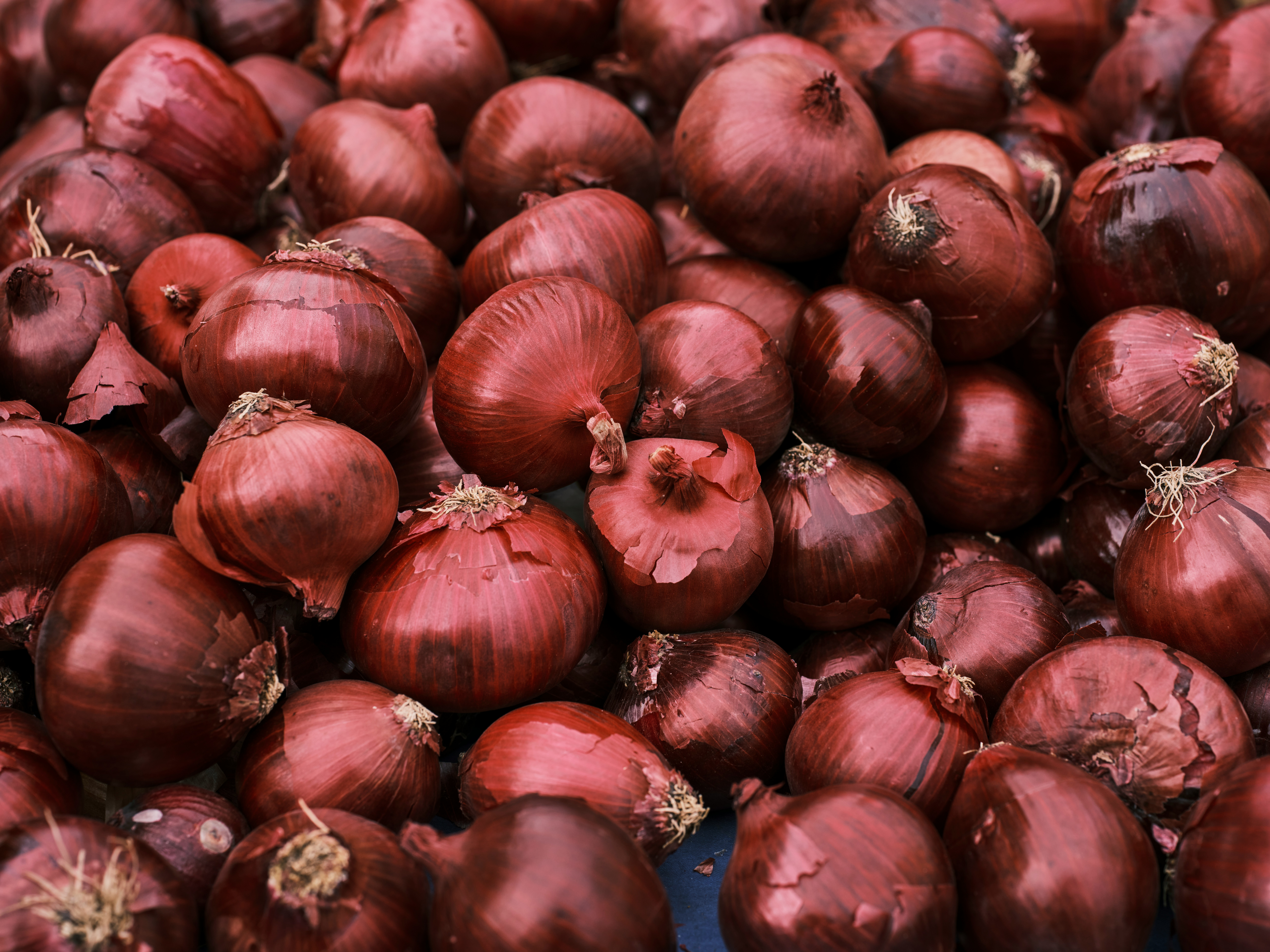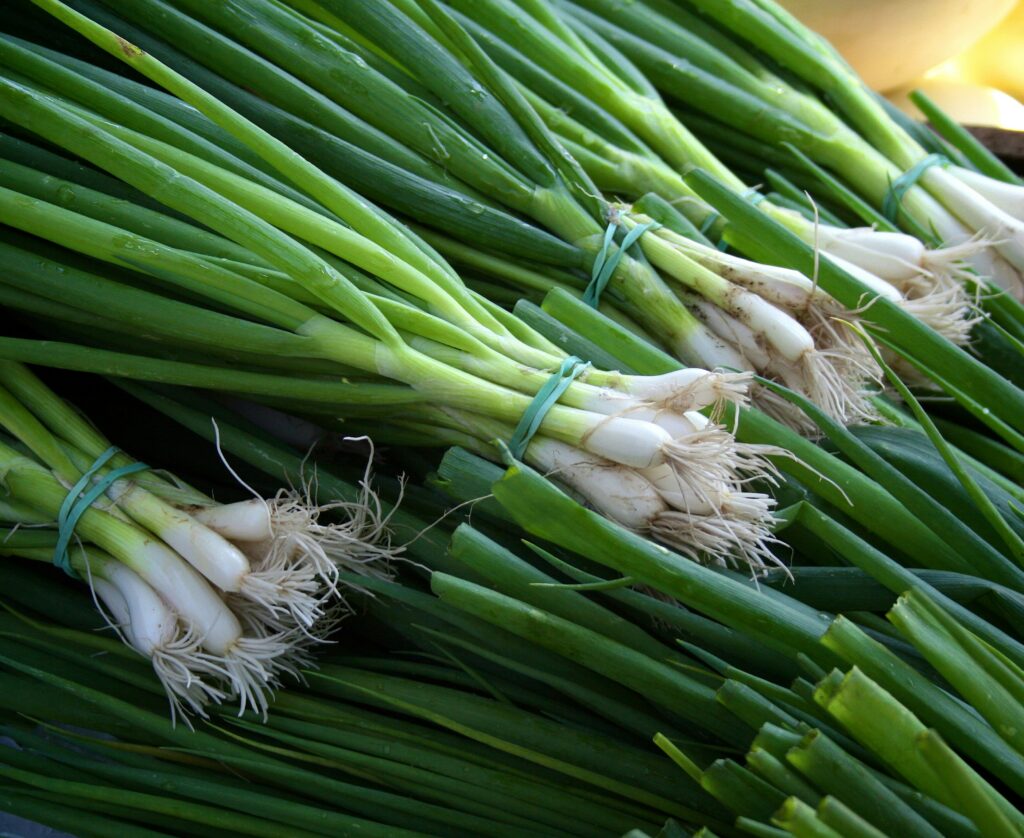
Onions are one of the most widely used vegetables in the world. From enhancing flavor in dishes to offering impressive health benefits, onions play a significant role in culinary, medicinal, and agricultural fields. Whether used raw, cooked, fried, or powdered, onions add depth, aroma, and richness to meals like no other ingredient.
In this detailed guide, we explore everything about onions — their history, nutritional profile, health benefits, varieties, farming techniques, and key uses.
What Are Onions?
Onions (Allium cepa) are bulb-shaped vegetables belonging to the Allium family, which also includes garlic, leeks, and chives. Originating thousands of years ago, onions are now cultivated across the globe and are a staple in nearly every cuisine.
Onions are known for their sharp, pungent flavor when raw and sweet, caramelized taste when cooked. They are used in soups, salads, gravies, pickles, sauces, and traditional food items.

Nutritional Value of Onions
Despite being low in calories, onions are loaded with essential nutrients, antioxidants, and anti-inflammatory compounds.
Nutritional Breakdown (per 100g)
- Calories: 40
- Carbohydrates: 9.3g
- Fiber: 1.7g
- Protein: 1.1g
- Vitamin C: 7 mg
- Folate (B9): 19 mcg
- Potassium: 146 mg
- Antioxidants: Quercetin, Kaempferol
Onions also contain sulfur compounds responsible for their strong smell and powerful medicinal properties.
Health Benefits of Onions
1. Boosts Heart Health
Onions help reduce cholesterol levels, lower blood pressure, and improve circulation due to flavonoids and antioxidants.
2. Powerful Anti-Inflammatory Effects
Quercetin, a major antioxidant in onions, helps fight inflammation, arthritis, and chronic diseases.
3. Strengthens Immunity
Vitamin C and phytochemicals enhance immune response and help the body fight infections.
4. Supports Digestion
The natural fiber and prebiotics in onions improve gut health and promote smoother digestion.
5. Controls Blood Sugar
Onion compounds help regulate glucose levels, making them beneficial for diabetics.
6. Improves Skin & Hair
Onions support collagen production, boost hair growth, and improve scalp health (especially onion juice).
7. Cancer-Fighting Properties
Research suggests onions may help reduce the risk of stomach, colon, and prostate cancer due to antioxidants.

Major Types of Onions
There are many onion varieties grown worldwide. Some popular types include:
1. Yellow Onions
Most common; strong flavor when raw and sweet when cooked.
2. Red Onions
Best for salads, burgers, and pickles; mild and colorful.
3. White Onions
Popular in Mexican cuisine; crisp and milder taste.
4. Sweet Onions
Includes Vidalia, Walla Walla, etc. Ideal for caramelizing.
5. Green Onions (Spring Onions)
Young onions with green stalks; used in soups, salads, and garnishing.
6. Shallots
Small, mild, and sweeter; used in gourmet cooking.
7. Onion Powder & Dehydrated Onions
Used in packaged foods, snacks, spice mixes, and ready-to-eat meals.
How Onions Are Grown
Onions are a hardy crop preferred by farmers because they grow in most climates and offer high market demand.
Ideal Growing Conditions
- Temperature: 13–25°C
- Soil: Fertile, loose, well-drained soil
- Water: Moderate, consistent moisture
- Soil pH: 6.0–7.0
Cultivation Steps
1. Land Preparation
Soil is plowed and enriched with compost or organic manure.
2. Seed Sowing or Transplanting
Seeds are sown in nursery beds, or small seedlings are transplanted after 6–8 weeks.
3. Watering
Onions need regular watering but cannot tolerate waterlogging.
4. Weeding & Fertilization
Timely weeding improves bulb growth; nitrogen fertilizers enhance yield.
5. Pest & Disease Control
Common issues:
- Thrips
- Onion maggots
- Fungal infections
Using neem oil and crop rotation helps reduce risks.
6. Harvesting
Onions are ready when the tops fall over and dry out. Bulbs are pulled out and sun-dried for several days.
Uses of Onions in Cooking
Onions are one of the most versatile ingredients in the kitchen. They can be:
- Fried
- Caramelized
- Pickled
- Roasted
- Used raw
- Blended into gravies
- Added to snacks, soups, biryanis, curries, and salads
Onion powder and flakes are widely used in fast food, packaged snacks, and spice blends.
Economic Importance of Onions
Onions have huge demand in both domestic and international markets, making them a profitable crop.
Why Onions Are Valuable for Farmers
- Long shelf life
- High export demand
- Essential in daily cooking
- Good profit margins
- Can be grown twice a year
Onions also generate income through fresh sale, dehydrated products, and processing industries.
Conclusion
Onions are not only a kitchen essential but also a powerhouse of nutrition and a profitable crop for farmers. Their unique flavor, health benefits, and wide range of uses make them one of the most important vegetables worldwide. Whether you grow onions, consume them for health, or use them in daily cooking, their value is undeniable.
For more updates, tips, and agricultural knowledge, join our WhatsApp channel:
👉 WhatsApp Channel:
http://whatsapp.com/channel/0029VbBz1Ni5vKAHRbmLNy45




